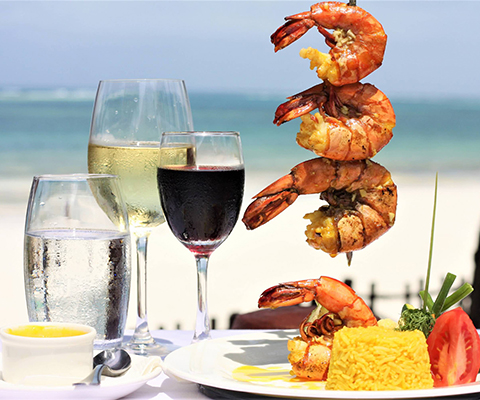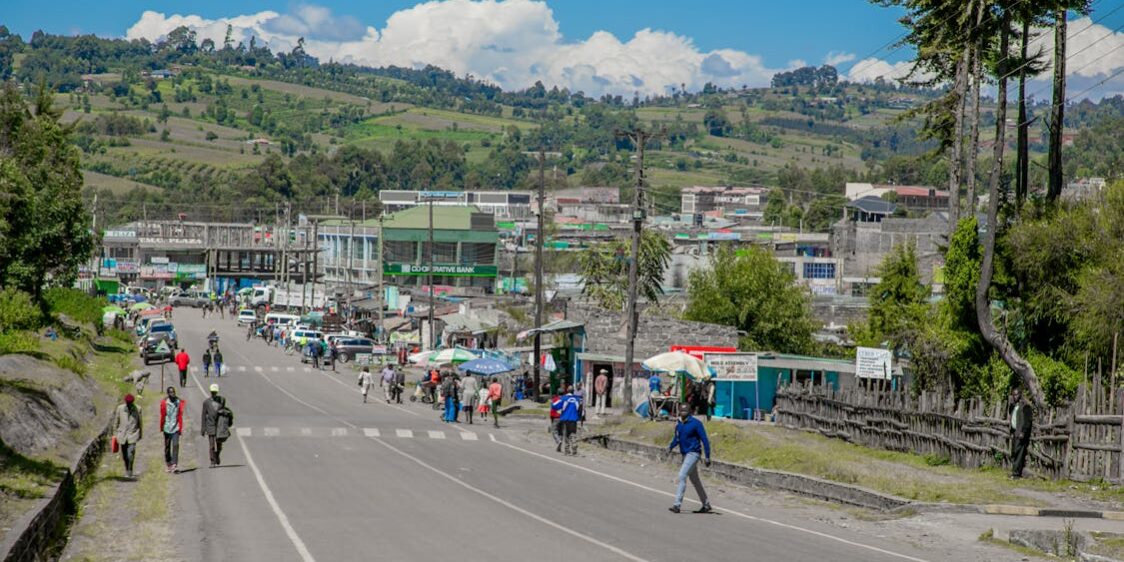By Sheila Cherotich
Okay, so here’s the deal: if you’re ever in Nairobi and don’t check out the local markets, you’re seriously missing out. It’s not just shopping, it’s a whole experience. Think bold colors, loud bargaining, the smell of fresh spices, and artists making stuff right in front of you.
I’m talking beaded jewelry, hand-carved pieces, funky fabrics, stuff you won’t find in any mall. These places are raw, real, and full of energy. Let me put you on to 6 of my favorite spots that honestly capture the soul of this city.
Maasai Market
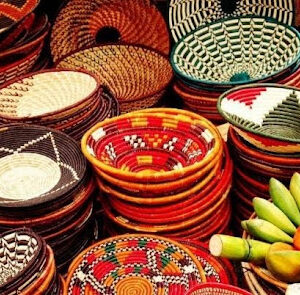
Traditional handmade crafts
Alright, let’s talk about the Maasai Market. This place is the real MVP of Nairobi shopping. It’s named after the Maasai people (you know, the ones with the bold red shukas and beautiful beadwork), and it’s a pop-up market that’s full of color, culture, and straight-up talent.
The vibe? Lively. Think music playing, stalls everywhere, and artists selling their work with pride. You’ll find everything from chunky beaded earrings to hand-carved wooden pieces, bright kitenge fabrics, paintings, and Maasai sandals. Honestly, it’s a treasure chest. If you’re into one-of-a-kind, handmade stuff that tells a story, this is your spot.
Here’s the cool part: the market moves around! On Saturdays, it’s at the High Court parking lot in town. Sundays, you’ll catch it at Yaya Centre, and on Thursdays, it pops up on the rooftop of Prestige Mall. So, depending on what day you’re around, you’ve got options.
Oh, and don’t be shy about bargaining. It’s normal to haggle here. Smile, have fun with it, and you’ll probably walk away with an awesome deal (and maybe a new friend or two).
City Market
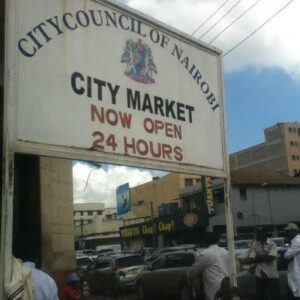
Busy street at City Market
Next up is City Market, right in the middle of Nairobi’s CBD on Muindi Mbingu Street; you seriously can’t miss it. This spot has been around since the 1930s (yes, it’s that old), and it’s still going strong.
Back in the day, it started as a veggie market, but now it’s kind of like a little everything store. You’ll find fresh flowers that smell amazing, juicy cuts of meat and fish, piles of spices, tasty local snacks (hello, roasted peanuts and samosas), and some cool handmade souvenirs.
Because it’s smack in the city center, the prices might be a tiny bit higher than other spots, but honestly, the convenience and variety make up for it. Plus, it’s open every day from morning till late afternoon, so it’s perfect for a quick stop, whether you’re running errands or just wandering around town.
It’s not super fancy, but it’s real, raw, and full of charm, just how Nairobi does it.
Village Market
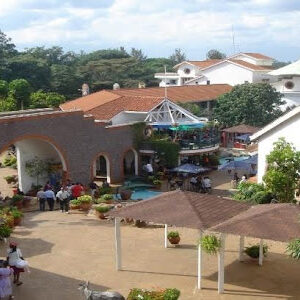
A serene outdoor courtyard with lush greenery cozy seating areas and perfect relaxation
Okay, now if you’re feeling a little boujee and want to mix culture with comfort, head over to Village Market in Gigiri, right off Limuru Road. It’s not your typical “market” vibe. Think more glam, more polished, but still packed with personality.
With over 150 shops and restaurants (yes, 150!), it’s kind of like a mashup of a high-end mall and an artisan fair. You’ve got big names like Victoria’s Secret, Banana Republic, and Timberland sitting right next to stalls selling handcrafted African jewelry, home decor, and some seriously cool art pieces. You’re covered, from splurging on something special to simply enjoying a bit of window shopping.
The whole place has this modern-African look, earthy tones, pretty architecture, and an open courtyard where kids splash around in the fountain or hit the playground. Oh, and if you’re not really into shopping, no worries, there’s a cinema, a bowling alley, trampolines, and even an arcade. It’s a playground for grown-ups and kids.
Perfect for a chill weekend, a family day out, or even just a cute coffee-and-browse kind of afternoon.
Yaya Centre
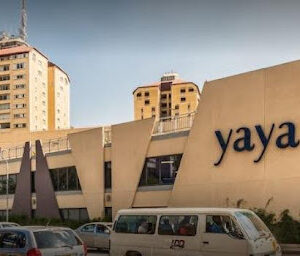
Yaya centre one of Nairobi’s top shopping mall
Let’s talk about Yaya Centre, it’s classy, cozy, and a little bit nostalgic. Tucked in Kilimani along Argwings Kodhek Road, this mall is kind of a big deal. Fun fact: it was named after the founder’s wife, whose nickname was “Yaya,” cute, right?
This place has got everything, over 100 stores! From fashion, gadgets, and home stuff to your go-to international faves like Zara, Nike, and Woolworths. Plus, the Chandarana Foodplus supermarket is a hidden gem if you’re into Indian spices or just good food in general.
But what makes Yaya extra special is the vibe, the mix of modern style with a touch of African charm. There’s this cool thatched roof and an open-air central space that lets in all the sunlight. It feels airy, warm, and kind of like you’re shopping outdoors without sweating your edges off.
Now here’s the real gem: Sundays at Yaya. They host a super cute flea market right inside the complex. You’ll find stylish locals browsing through handmade goodies, clothes, art, and all kinds of unique stuff you won’t see in regular shops. It’s the perfect Sunday stroll spot, where you can grab a coffee, shop a little, and just vibe.
Gikomba Market
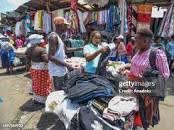
Nairobi open air market
Alright, if you’re feeling bold and ready to dive into the real Nairobi shopping scene, then Gikomba Market is where it’s at. This place is massive, messy, and magical, all at the same time.
Gikomba is the queen of “mitumba” (that’s second-hand clothes, by the way), and it’s a total goldmine. We’re talking branded jeans for the price of your lunch, cute jackets, vintage finds, shoes, bags, all hidden in the chaos, just waiting to be discovered. But it’s not just clothes, you’ll also find fresh fruits, electronics, kitchen stuff, and random little gems you didn’t even know you needed.
This market is a favorite for hustlers and small business owners who come here to score deals, then flip them for a profit. So if you’ve got an eye for a bargain (and don’t mind getting a little dusty), Gikomba is the spot.
Just a heads-up: it gets crowded, loud, and a bit hectic, but that’s part of the charm. Think of it like a giant treasure hunt. Bring your comfy shoes, your street smarts, and your inner bargain queen; trust me, the deals are worth it.
Sarit Centre
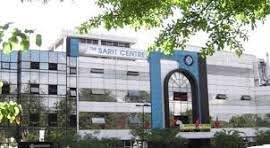
Sarit Centre
Last but not least, let’s talk about Sarit Centre, aka the OG of Nairobi malls. Sitting right in the heart of Westlands, this place has been around forever, but trust me, it’s aging like fine wine.
Sarit’s got everything: Game, Samsung, Mango, and a bunch of other stores where you can grab gadgets, outfits, and groceries. Whatever you’re in the mood for. And with all the recent upgrades, it’s feeling fresh, modern, and super spacious (hello, mall glow-up!).
But Sarit isn’t just about shopping, it’s also kind of a hotspot for cool events. The Sarit Expo Centre hosts big exhibitions all year round. If you’re into weddings, the Samantha Bridal Expo is a must-see. And don’t sleep on the Egyptian Expo, you’ll find the cutest home pieces, jewelry, and even fancy cutlery from across the region.
Doing serious shopping or just looking to hang out, grab a bite, or catch an event, Sarit Centre has that comfy, all-in-one vibe. It’s reliable, fun, and still one of the best places to spend a chill afternoon in Nairobi.
Frequently Asked Questions
- What should I buy at the Maasai Market?
Beaded jewelry, Maasai sandals, wooden carvings, kitenge fabrics, baskets, and paintings. - What is the most popular street in Nairobi? Kenyatta Avenue is central, wide, and lined with major shops and offices.
- What is sold in the City Market?
Fresh produce, meat, fish, flowers, souvenirs, and handmade crafts. - What is the nicest part of Nairobi?
Karen, Gigiri, Runda, and Lavington, clean, green, and secure. - What can I do in Nairobi in one day?
Visit the Giraffe Centre, Elephant Orphanage, Karen Blixen Museum, and shop at Maasai Market. - Where do rich people live in Nairobi?
Karen, Runda, Muthaiga, Lavington, and Kitisuru. - What is considered the poor area of Nairobi?
Kibera, Mathare, and Mukuru informal settlements. - Which is the safest place to live in Nairobi?
Gigiri, Karen, Runda, Lavington, and Kilimani. - Where do Americans live in Nairobi?
Mostly in Gigiri, Karen, Runda, and Lavington. - Do I need to bargain in Nairobi markets?
Yes, bargaining is expected and part of the shopping culture.




